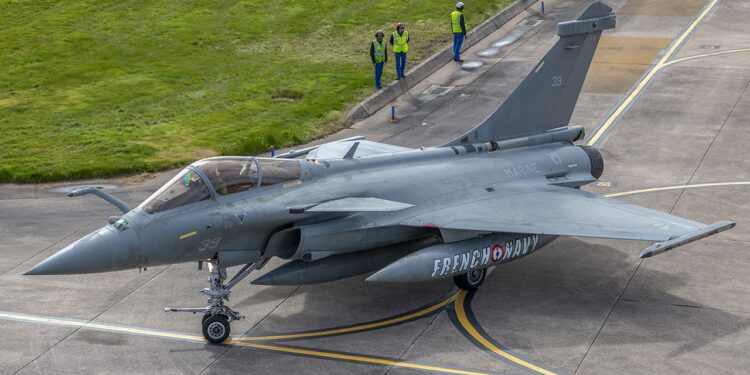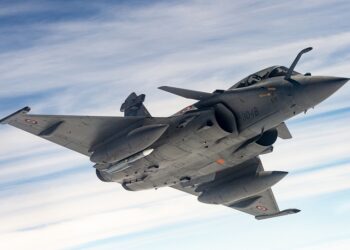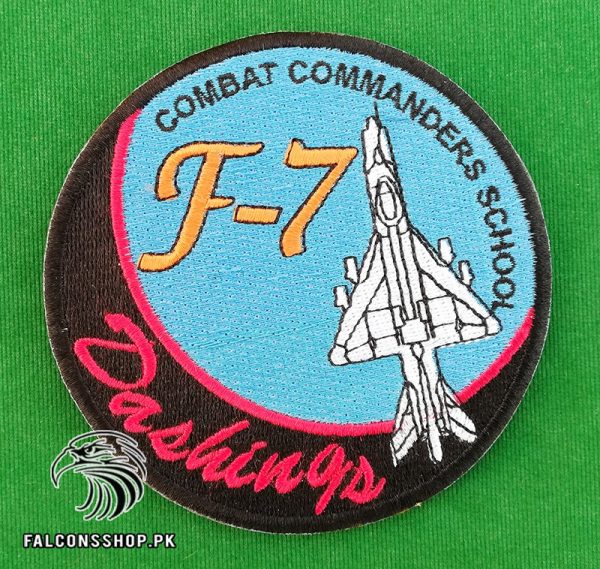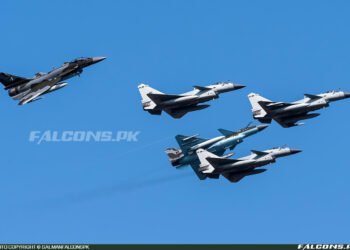By Ashish Dangwal
India is close to approving the purchase of Dassault Aviation’s Rafale-M (Marine) fighter jets that will operate from the flight deck of India’s newest aircraft carrier, INS Vikrant. The order for 26 of Rafale combat jet’s naval variant could be placed later this year to meet the Indian Navy’s urgent operational requirements.
This purchase could cost the Indian government at least US$8 billion, calculated back of the envelope based on the price of 36 air force variants bought in 2016. All 36 Rafales were delivered to the Indian Air Force by the end of 2022.
According to a report, the Indian Navy informed the Indian Ministry of Defence of its preference for the French fighter aircraft Rafale Marine over the only other contender, Boeing’s F/A-18 Super Hornet. The Indian Navy has submitted a procurement proposal for the French fighter following a detailed comparison of its capabilities with those of the US-built F/A-18 Super Hornet.
The Indian Navy Air Arm is presently looking for a replacement for its aging MiG-29K aircraft, which is the combat air platform for the Russian-origin INS Vikramaditya, the other operational aircraft carrier of the Indian Navy.
The Rafale now retains the lead one year after the two competing aircraft underwent intensive field testing at the Indian Navy’s Goa-based facility. The Rafale M outperformed its rival in the evaluation process because it was deemed to be “more suitable in meeting the operational requirements and criteria” of the Indian Navy, the report added.
The Indian Air Force operates a fleet of 36 Rafale fighter jets from two bases in India’s North and East. The fleet’s commonality, as well as the savings on training, repairs, and maintenance, are said to have tipped the balance in support of Dassault’s Rafale Marine, the report noted.
The two variants of the French-made warplane share more than 80% of their components. The Rafale-M aircraft will be used aboard India’s indigenously developed aircraft carrier INS Vikrant.
INS Vikrant, the Indian Navy’s first homemade aircraft carrier, went into service in September 2022 and recently started vital aviation testing months earlier than expected with landing/takeoff cycles of the domestic LCA Navy and the standard carrier-based fighter MiG-29K.
The report noted that the Ministry of Defence had drafted a detailed contract that includes Performance-based Logistics and ensures that the Original Equipment Manufacturer will be in charge of the overall upkeep of the aircraft and the delivery of spare parts.
Dassault Aviation will also enable a repair facility for the Rafales onboard the INS Vikrant, in addition to one in Goa’s INS Hansa naval air base, and will also train the naval aviation ground personnel, in addition to the pilots.
Rafale-M has been in a close contest with Boeing’s Super Hornet for the Indian Navy’s tender. The Indian Navy was presumably impressed by the capabilities of French-made fighter aircraft during a joint exercise in India.
Meanwhile, Chief of Naval Staff Admiral R. Hari Kumar recently said that Rafale M has an advantage in terms of spare parts and maintenance due to its commonality with the Indian Air Force’s fleet.
Navy’s Efforts To Procure A New Fighter Aircraft
The Indian Navy has been looking for short-term options to replace its outdated MiG-29K temporarily. New Delhi is presently working to develop its own Twin-Engine Deck-Based Fighter (TEDBF) aircraft to meet its long-term need for carrier-based operations.
But, since it would be sometime before the local naval combat aircraft is produced in-house, the Indian Navy has chosen to acquire a new carrier-based fighter jet to suit its immediate demands.
The Indian Navy chief and India’s Aeronautical Development Agency’s director general, Girish S. Deodhare, had earlier stated that the prototype of a twin-engine, deck-based fighter is projected to be ready by 2026, production beginning 2031 and possible induction into naval aviation service by 2034.
“We have learned what the requirements are for a carrier-launched aircraft. Since there is a gap between now and when the prototype will be completed, we expressed interest in a deck-based fighter, and therefore we had Rafale M and F/A-18 doing the trials in Goa,” Admiral Hari Kumar had said.
“The expertise gained in developing the Light Combat Aircraft (Navy) will come in handy for the TEDBF project. It’s currently in the preliminary design stage and should move forward quickly. The wing folding design mechanism (to ensure the plane takes minimum space on an aircraft carrier) has been finalized,” Deodhare too had said.
If France successfully secures the contract, the Indian Navy will become the country’s first export customer for the carrier-based Rafale-M. Paris has already successfully exported the air force variant to a number of countries, including India.
The air force variant Rafale is also a competitor in the Indian Air Force’s Multi-Role Fighter Aircraft (MRFA) competition, under which at least 114 fighter jets would be procured, nearly 80% of which would be made in India, against Boeing’s F/A-18 and F-15X, SAAB’s Gripen, and Lockheed Martin’s F-21, a new variant of its vintage F-16s specifically designed for Indian requirements.
That said, Rafale’s victory in the Indian naval competition will also be a severe loss for Boeing, a US defense industry powerhouse. Boeing has recently announced that it will stop manufacturing the F/A-18 Super Hornet fighters at the end of 2025 unless it secures an international order.
The Super Hornet has taken part in various international tenders over the past few years, but it has not been successful in securing any orders. Thus, losing another tender would, therefore, be a huge letdown for Boeing.
F/A-18s were featured as the spearhead of US Navy operations in the 2022 American action drama and Tom Cruise-starrer Top Gun – Maverick, a sequel to the 1986 iconic aviation film ‘Top Gun.’






